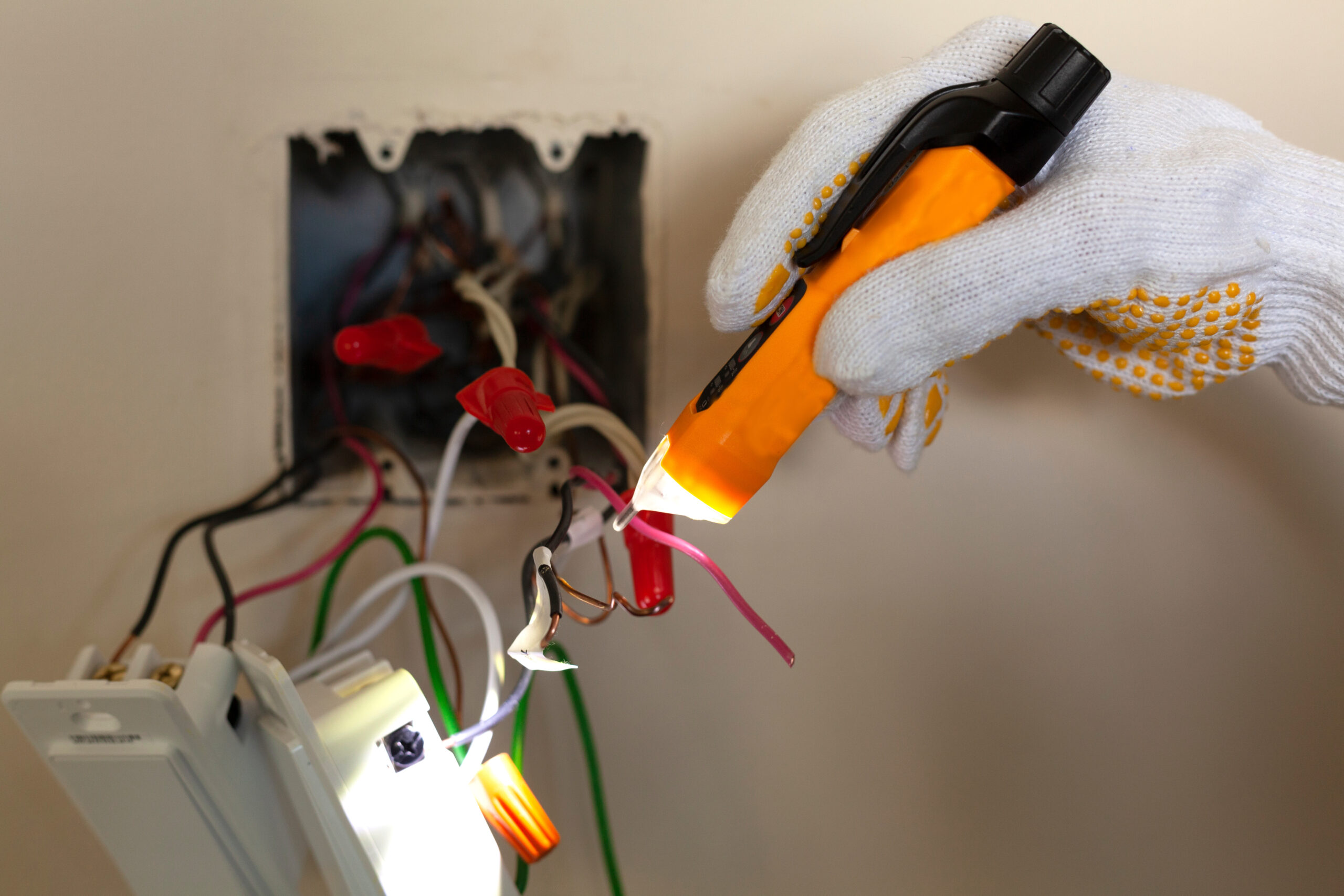How satisfying is it when you can tackle a home improvement with your own hands? Especially when it comes to something electrical. Hold on to your pliers folks, before you grab your toolbox and start rewiring the living room, there’s something you should know: understanding residential electrical code requirements is not just a suggestion, it’s a legal and safety necessity.
Whether you’re a seasoned DIYer or just trying to save a few bucks, working with electricity isn’t as simple as flipping a switch (pun intended). There’s a whole set of residential electrical code requirements that govern every electrical installation in your home, ensuring safety, functionality, and compliance with local laws.
Before you attempt your next electrical project, it’s extremely important to understand what these codes are and why they matter. After all, safety isn’t just about keeping the lights on, it’s about keeping your home and family safe from potential hazards.

Why Residential Electrical Code Requirements Matter
If you’re thinking about doing your own electrical work, you might be wondering, “What’s the big deal about electrical codes anyway?” Yeah, it’s a valid question, especially if you’ve never tackled wiring before. But the truth is, residential electrical code requirements are not just bureaucratic red tape; they’re essential guidelines that protect you, your home, and your community.
The National Electrical Code (NEC) is the bible of electrical work in the United States. It sets the standards for how electrical systems should be installed and maintained. The NEC isn’t just about making sure your lights turn on without a hitch, it’s about preventing electrical fires, reducing the risk of electric shock, and ensuring the overall safety of your home’s electrical system. While the NEC is a national guideline, individual states and cities, like those in Central Maryland, may have their own additional rules to follow, which is why working with local licensed professionals like CK Electric is so important.
Safety First: Avoiding Hazards
The primary purpose of electrical code requirements is to reduce the risk of hazards. Incorrect wiring can lead to overheating, short circuits, or even electrical fires. By following the code, you can minimize these risks. The electrical code also mandates the use of certain materials and techniques that are proven to be safer, like installing ground fault circuit interrupters (GFCIs) in areas prone to moisture (more on that later).
Even if you’re confident in your abilities, if your home’s electrical system doesn’t meet code, you could run into serious problems down the line, especially if you ever plan to sell your house. Non-compliant work could fail a home inspection, potentially leaving you with expensive fixes and delays.
Common DIY Projects and Their Electrical Code Requirements
Now that you understand why these codes are important, let’s break down some of the most common residential electrical projects and what you need to know to keep them up to code.
Installing or Replacing Electrical Outlets
You may think changing an electrical outlet is as easy as switching one for another, but there’s more to it than just connecting a few wires. The NEC requires outlets to be installed in specific locations and heights, particularly in rooms like kitchens and bathrooms.
In kitchens, for example, the NEC mandates that outlets be installed along the countertops so that no point along the wall is more than 24 inches from an outlet. This ensures that small appliances like blenders or coffee makers can always be plugged in safely without running cords across the room.
GFCI and AFCI Protection
Another critical code requirement for outlets, particularly in bathrooms, kitchens, garages, and outdoor spaces, is the installation of Ground Fault Circuit Interrupters (GFCI). These devices automatically shut off the power if they detect that electricity is flowing where it shouldn’t—like through water or a person. Similarly, Arc Fault Circuit Interrupters (AFCI) are required in bedrooms and living areas to prevent electrical fires caused by faulty wiring or damaged cords.
Skipping these safety devices isn’t just dangerous, it’s illegal.
Wiring Light Fixtures
Wiring a new light fixture or ceiling fan might seem like a straightforward task, but it’s important to follow the correct residential electrical code requirements to avoid issues. For one, the NEC specifies that light fixtures in closets must be installed a certain distance away from shelves to prevent overheating. There are also requirements for the types of bulbs you can use, with a preference for energy-efficient LED bulbs in newer installations.
If you’re installing a ceiling fan, you’ll also need to ensure that the electrical box is rated to support the fan’s weight. A box that’s only designed for lighting could break and cause the fan to come crashing down. No one wants that kind of excitement!
Adding or Expanding Circuits
If you’ve run out of places to plug in all your gadgets, you might be tempted to expand your circuit breaker box or add new circuits. However, this is not a project to take lightly. The NEC requires that circuits are balanced, meaning they are evenly distributed across the panel. This prevents overloading any one circuit, which can cause it to trip or even spark a fire.
When adding circuits, it’s also crucial to ensure that the wiring gauge matches the circuit’s amperage. For example, a 20-amp circuit requires 12-gauge wire. Using the wrong wire size could lead to overheating and pose a significant fire risk.
Specialized Residential Electrical Code Requirements by Room
Different rooms in your house have different electrical demands, and the residential electrical code requirements reflect this. Let’s take a closer look at what’s required in some key areas of your home.
Kitchens
Kitchens are one of the most electrically demanding rooms in any house, and as such, they come with some of the strictest code requirements. Here are a few essentials:
- Countertop outlets: As mentioned earlier, the NEC requires that countertop outlets be placed no more than 24 inches apart.
- Appliance circuits: Larger appliances like refrigerators, microwaves, and dishwashers require their own dedicated circuits. This prevents overloading and ensures that the appliance can run without interruption.
- GFCI outlets: Because water and electricity don’t mix well, GFCI outlets are required within 6 feet of any sink.
Bathrooms
Like kitchens, bathrooms have a high potential for water exposure, making electrical safety a top priority. The NEC requires:
- GFCI protection for all outlets in the bathroom.
- Ventilation fans must be wired to their own circuit or linked with a light switch. This ensures proper airflow and reduces the risk of moisture buildup.
- Lighting fixtures must be rated for damp locations if they are installed near a shower or bathtub.
Living Rooms and Bedrooms
While the electrical demands in living rooms and bedrooms are generally lower than in kitchens or bathrooms, there are still important codes to follow:
- Outlet spacing: The NEC mandates that outlets be installed so that no wall is more than 12 feet away from an outlet. This prevents the overuse of extension cords, which are a common fire hazard.
- AFCI protection: All circuits serving living rooms and bedrooms must be protected by AFCI breakers to reduce the risk of electrical fires.
Understanding Permits and Inspections
Even if you’re well-versed in residential electrical code requirements, you may still need to obtain a permit before starting any electrical project. In many cases, permits are required for any electrical work beyond simple repairs. Once the work is completed, it will need to be inspected to ensure it complies with the relevant codes.
Permits and inspections might seem like a hassle, but they’re there to protect you. An inspector can identify potential problems that you may have missed and ensure that your work is safe and up to code. And if you ever plan to sell your house, having properly permitted and inspected electrical work can prevent major headaches during the home inspection process.
CK Electric: Central Maryland’s Trusted Electrical Contractor
 At the end of the day, while it’s tempting to handle electrical work on your own, it’s often best left to the professional, especially when it comes to complying with the intricate web of residential electrical code requirements. That’s where CK Electric comes in. As Central Maryland’s trusted licensed electrical contractor, CK Electric brings a deep understanding of the local and national codes that keep your home safe and functional.
At the end of the day, while it’s tempting to handle electrical work on your own, it’s often best left to the professional, especially when it comes to complying with the intricate web of residential electrical code requirements. That’s where CK Electric comes in. As Central Maryland’s trusted licensed electrical contractor, CK Electric brings a deep understanding of the local and national codes that keep your home safe and functional.
Whether you need simple repairs, a major installation, or just some expert advice, CK Electric is here to help. With their years of experience and commitment to safety, you can rest easily knowing your electrical system is in good hands. After all, there’s a lot more to electricity than meets the eye, and CK Electric has the knowledge to handle it all.
Contact us today! We provide electrical services for the following areas: Sykesville, Westminster, Eldersburg, Ellicott City, Frederick, and all of Central Maryland. Call us at 443-920-3078 or email us at info@ckelectricllc.com. We are happy to serve you!
FAQs
What are residential electrical code requirements?
Residential electrical code requirements are guidelines set by the NEC to ensure the safety and functionality of a home’s electrical system.
Why are GFCI outlets required in certain areas?
GFCI outlets protect against electrical shocks by cutting off the power if they detect that electricity is flowing through water or a person.
Do I need a permit for DIY electrical work?
In most cases, yes. Permits are often required for anything beyond simple repairs, and your work will need to be inspected to ensure it meets code.
How do I know if my electrical work is up to code?
You can consult the NEC for guidelines, but it’s often best to work with a licensed electrician who knows both national and local codes.
What happens if my home’s electrical work doesn’t meet code?
If your electrical system doesn’t meet code, it could fail a home inspection, lead to fines, or even pose a safety risk like electrical fires.
Can CK Electric handle both small and large electrical jobs?
Absolutely! CK Electric is equipped to handle everything from minor repairs to large-scale installations, all while ensuring the work is done safely and up to code.
